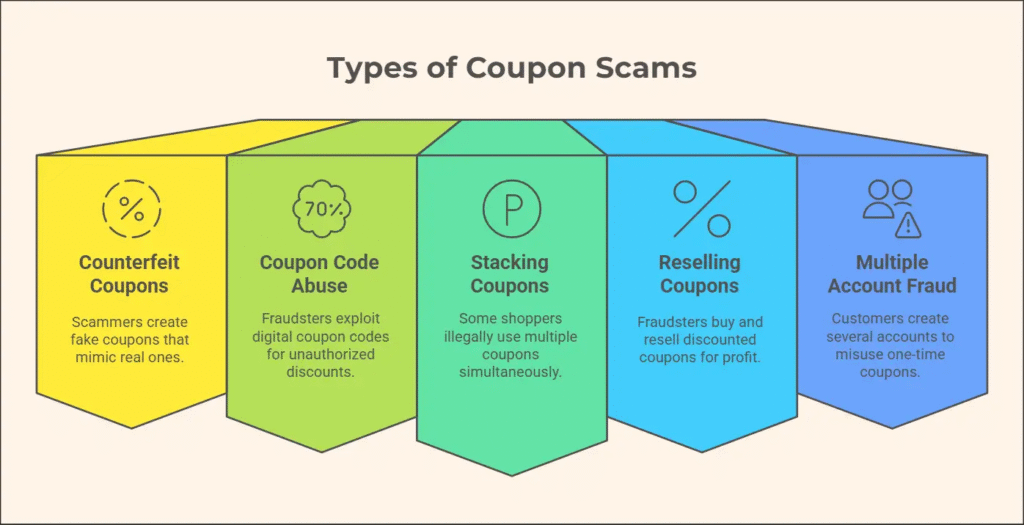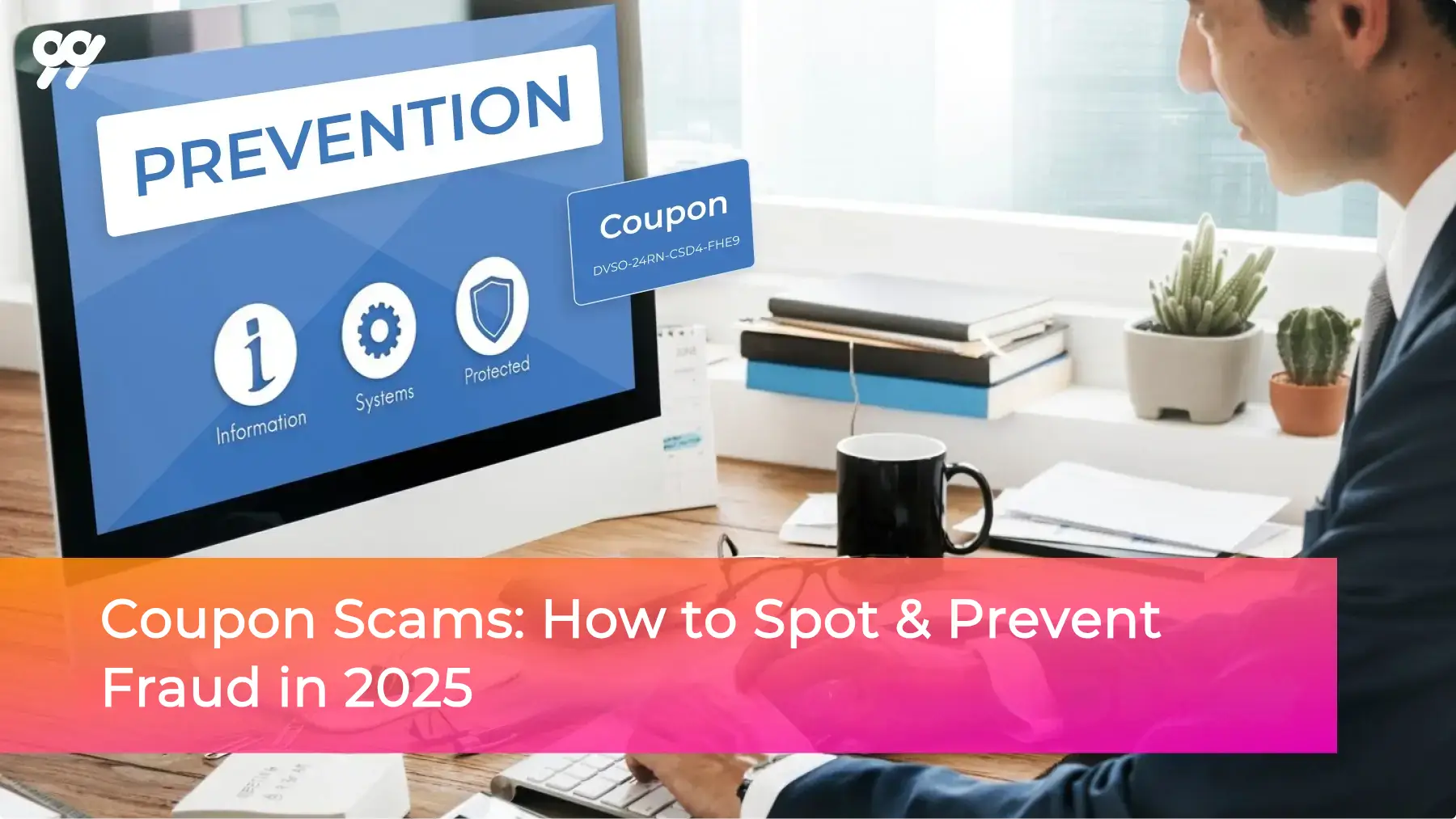How to Spot Fake Coupon Codes & Find Real Discounts
Introduction
In the digital age, online learning platforms like edX, Coursera, Codecademy, and DataCamp offer invaluable opportunities to enhance your skills. However, with the abundance of coupon codes available online, distinguishing between legitimate discounts and fraudulent offers can be challenging. At Coding Coupons, we aim to empower learners by providing verified coupon codes, promo offers, and seasonal deals for popular coding and online learning platforms. In this comprehensive guide, we’ll explore how to spot fake coupon codes and find real discounts, ensuring you save money while upgrading your skills.

Understanding Coupon Codes
What Are Coupon Codes?
Coupon codes, also known as promo codes or discount codes, are alphanumeric strings that online retailers provide to customers. When applied during checkout, these codes grant various benefits, such as:
- Percentage Discounts: e.g., 20% off
- Fixed Amount Discounts: e.g., ₹500 off
- Free Shipping: e.g., free delivery on orders above ₹1000
- Exclusive Access: e.g., early bird access to sales
These codes are typically shared through email newsletters, social media, or affiliate websites to encourage purchases and reward loyal customers.
The Rise of Fake Coupon Codes
Common Characteristics of Fake Coupon Codes
With the proliferation of online shopping, scammers have capitalized on the popularity of coupon codes to deceive consumers. Here are some telltale signs of fake coupon codes:
- Unrealistic Discounts: Offers that seem too good to be true, such as 90% off or free courses, are often fraudulent.
- Unusual URLs: Coupon links that redirect to unfamiliar or suspicious websites.
- Grammatical Errors: Poorly written coupon descriptions or codes with spelling mistakes.
- Lack of Expiration Dates: Legitimate coupons usually have a clear expiration date; the absence of one can be a red flag.
- No Brand Association: Codes that don’t correspond to any known retailer or platform.

Risks of Using Fake Coupon Codes
Using fake coupon codes can lead to several negative consequences:
- Financial Loss: Scammers may collect your payment information without providing any discounts.
- Malware Exposure: Clicking on fraudulent links can lead to malware infections.
- Account Compromise: Some fake coupons require account creation, potentially compromising your personal information.
- Missed Opportunities: Attempting to use invalid codes can waste time and cause frustration.
How to Spot Fake Coupon Codes
1. Verify the Source
Always ensure that the coupon code originates from a reputable source. Trusted platforms include:
- Official Websites: Check the retailer’s official website for promotions.
- Reputable Coupon Sites: Websites like CouponFollow and SimplyCodes offer verified codes.
- Browser Extensions: Tools like Honey and Pouch automatically find and apply valid codes during checkout.
2. Check the URL
Before clicking on a coupon link, examine the URL:
- Secure Connection: Ensure the website uses HTTPS, indicating a secure connection.
- Official Domain: Verify that the domain matches the retailer’s official website.
- Avoid Shortened Links: Be cautious of shortened URLs, as they can obscure the destination site.
3. Look for Reviews and Feedback
Research the coupon code by looking for reviews or feedback from other users:
- Community Forums: Platforms like Reddit often have discussions about the validity of certain coupon codes.
- Social Media: Check the retailer’s official social media pages for announcements about current promotions.

4. Test the Code
If possible, test the coupon code on a small purchase:
- Small Transaction: Apply the code to a low-cost item to minimize potential loss.
- Checkout Process: Ensure the discount is applied correctly during the checkout process.
5. Be Wary of Too-Good-To-Be-True Offers
Exercise caution with offers that seem excessively generous:
- High Discounts: Be skeptical of codes offering extreme discounts, especially if they are not part of a known sale event.
- Free Offers: Legitimate platforms rarely offer free courses without specific conditions or promotions.
How to Find Real Discounts
1. Subscribe to Newsletters
Many online learning platforms send exclusive discounts to their subscribers:
- Email Alerts: Sign up for newsletters to receive updates on upcoming sales and promotions.
- Early Access: Subscribers often get early access to sales and special offers.
2. Utilize Browser Extensions
Browser extensions can help you find valid coupon codes automatically:
- Honey: Automatically applies the best coupon codes during checkout.
- Pouch: Alerts you to available discounts as you shop online.
3. Check Seasonal Sales
Retailers often offer significant discounts during specific times of the year:
- Black Friday/Cyber Monday: Major sales events with substantial discounts.
- Back-to-School Sales: Discounts on educational materials and courses.
- Holiday Promotions: Special offers during holidays like Diwali or New Year.
4. Join Loyalty Programs
Some platforms offer loyalty programs that provide ongoing discounts:
- Points System: Earn points for each purchase, redeemable for discounts.
- Exclusive Offers: Access to members-only promotions and deals.
5. Follow on Social Media
Retailers often announce flash sales and exclusive discounts on their social media channels:
- Facebook/Twitter: Follow official accounts for real-time updates.
- Instagram: Look for discount codes shared in posts or stories.
Tools to Help You Find Real Discounts
Browser Extensions
- Honey: Automatically finds and applies the best coupon codes at checkout.
- Pouch: Alerts you to available discounts as you shop online.
Coupon Websites
- CouponFollow: Provides verified coupon codes for various retailers.
- SimplyCodes: Offers a community-driven platform for sharing and verifying coupon codes.
Cashback Websites
- TopCashback: Earn cashback on purchases made through their links.
- CashKaro: Offers cashback and coupons for Indian shoppers.
Conclusion
Navigating the world of online discounts can be challenging, but by staying informed and utilizing the right tools, you can avoid fake coupon codes and find legitimate discounts. At Coding Coupons, we are committed to providing verified coupon codes and promo offers for popular coding and online learning platforms, helping you save money while enhancing your skills. Remember to always verify the source of a coupon code, check for reviews, and be cautious of offers that seem too good to be true. Happy learning and saving!
FAQ
1. Are all coupon codes legitimate?
No, not all coupon codes are legitimate. It’s essential to verify the source and check for signs of authenticity before using a coupon code.
2. How can I verify a coupon code?
Verify a coupon code by checking its source, looking for reviews or feedback from other users, and testing it on a small purchase.
3. Are browser extensions safe to use?
Most reputable browser extensions are safe to use. Ensure you download extensions from official sources and read user reviews before installation.
4. Can I use multiple coupon codes on a single purchase?
Typically, retailers allow only one coupon code per transaction. However, some platforms may offer stackable discounts during special promotions.
5. How can I stay updated on the latest discounts?
Subscribe to newsletters, follow retailers on social media, and use browser extensions to stay informed about the latest discounts and promotions.
[CTA BUTTON: Explore Verified Coding Coupons — Link: https://www.codingcoupons.com]






